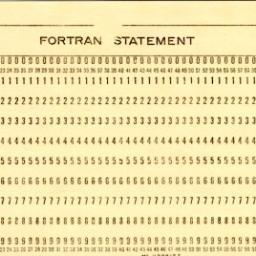Fortran Forever
 ArsTechnica has an interesting article featured today about scientific computing and the enduring role played by the Fortran programming language . The article explores three potential challengers to the dominance of Fortran in scientific computing including Haskell , Clojure , and Julia . One of the main points made by the article is that support for existing Fortran and C libraries is essential as is support for concurrent (parallel) algorithms. Will Fortran rule scientific computing forever or will a challenger usurp the throne?
ArsTechnica has an interesting article featured today about scientific computing and the enduring role played by the Fortran programming language . The article explores three potential challengers to the dominance of Fortran in scientific computing including Haskell , Clojure , and Julia . One of the main points made by the article is that support for existing Fortran and C libraries is essential as is support for concurrent (parallel) algorithms. Will Fortran rule scientific computing forever or will a challenger usurp the throne?[edited 2014-05-09 13:32 for spelling]